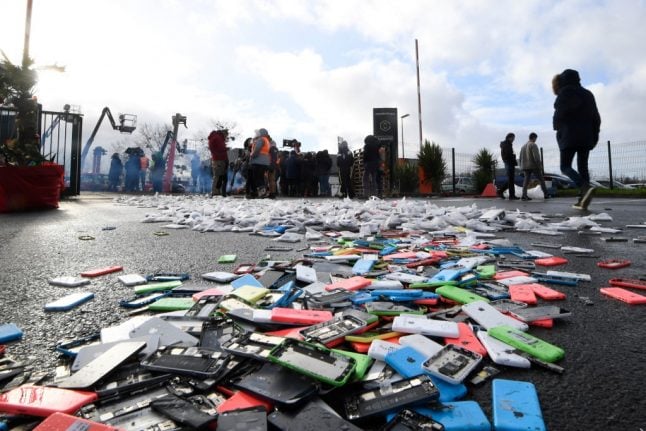An estimated 50 to 110 million phones are languishing in drawers across the country, since recycling options are not always straightforward and many people worry the personal data they store might still be accessible.
Ecosystem, the NGO behind the project, said people could order a pre-paid envelope from its website jedonnemontelephone.fr (I give my phone) or simply print out a pre-paid address label.
The phones are sent to a processing centre where all data is erased before the phone is either refurbished for sale at Emmaus charity shops, or in the majority of cases (83 percent) broken down for recyling and the removal of the most polluting components.
Ecosystem said on Monday that it plans to distribute 100 reconditioned phones from the scheme during each of the 35 stages of this year's Tour de France cycling race that begins on August 29th.
The project is an expansion of the nonprofit's main electronics recycling programmes that aim to keep appliances and other devices from incinerators or landfill sites.
In June, it collected a record 62,000 tonnes of material as people cleared out their homes after two months of coronavirus lockdown.



 Please whitelist us to continue reading.
Please whitelist us to continue reading.
Member comments